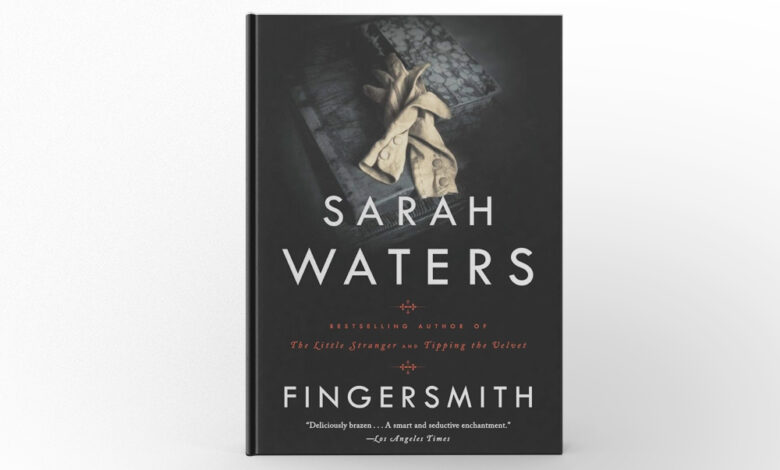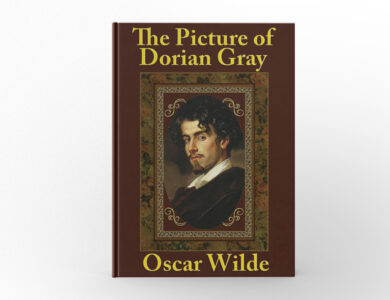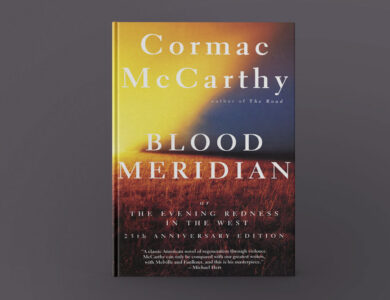
“Fingersmith” by Sarah Waters is a gripping historical crime novel that delves into themes of deception, identity, and love. Set in Victorian England, this intricate tale follows the lives of two young women, Sue Trinder and Maud Lilly, whose fates become entwined through a series of elaborate schemes and betrayals.
Author’s Background
Sarah Waters, born in 1966 in Neyland, Pembrokeshire, Wales, is a celebrated British novelist known for her richly detailed historical fiction. Waters earned degrees in English literature and completed a PhD focusing on gay and lesbian historical fiction. Her academic background and personal experiences heavily influence her writing. Waters’ debut novel, “Tipping the Velvet,” garnered critical acclaim and established her as a significant literary voice. “Fingersmith,” published in 2002, further cemented her reputation, earning nominations for the Man Booker Prize and the Orange Prize for Fiction. Her other notable works include “Affinity,” “The Night Watch,” and “The Little Stranger.”
In Depth Summary
“Fingersmith” begins with Sue Trinder, an orphan raised in a den of thieves by her adoptive mother, Mrs. Sucksby, in the slums of London. Sue’s life takes a dramatic turn when Gentleman, a charming conman, arrives with a proposition. He plans to seduce Maud Lilly, a wealthy heiress, and marry her to gain control of her fortune. Sue is to pose as Maud’s maid and help Gentleman in his scheme, with the promise of a share of the inheritance.
Sue travels to Briar, Maud’s secluded estate, where she meets the sheltered and naive Maud Lilly. As Sue gains Maud’s trust, she begins to feel conflicted about the plan. Despite her initial intentions, Sue develops genuine affection for Maud, and their relationship deepens into a romantic bond. However, the plot takes a shocking twist when Sue realizes that she has been deceived. Instead of Maud being committed to an asylum, it is Sue who is betrayed and sent away.
The narrative then shifts to Maud’s perspective, revealing her own struggles and the manipulations she has endured. Raised by her cruel uncle, Christopher Lilly, Maud has been used as a tool in his obsessive collection of rare books. Maud’s life at Briar is one of isolation and control, and her involvement in Gentleman’s scheme is driven by a desire for freedom. As Maud and Sue’s stories converge, they uncover deeper layers of deception and betrayal.
The novel’s climax occurs when Maud and Sue, now aware of the full extent of the schemes against them, join forces to seek revenge and reclaim their lives. Their journey is fraught with danger and uncertainty, but their bond and determination drive them forward. The story concludes with a sense of resolution and hope, as Maud and Sue find solace in each other and the possibility of a new beginning.
Themes and Insights
“Fingersmith” addresses several profound themes. One of the central themes is the exploration of identity and deception. Waters delves into the complexities of self-perception and the ways in which individuals are shaped by their circumstances and the expectations of others. The novel’s intricate plot and shifting perspectives highlight the fluidity of identity and the power of deception.
Another significant theme is the struggle for autonomy and freedom. Both Sue and Maud are trapped by their circumstances and the manipulations of those around them. Their journey towards self-discovery and empowerment underscores the importance of agency and the resilience of the human spirit.
The novel also explores themes of love and loyalty. The relationship between Sue and Maud is central to the story, illustrating the transformative power of love and the strength of human connections. Waters portrays love as a force that transcends societal norms and personal betrayals, offering a sense of hope and redemption.
Personal Reflections
Reading “Fingersmith” is an immersive and emotionally charged experience. Waters’ vivid prose and meticulous attention to historical detail make the reader feel intimately connected to the characters and their world. The novel prompts readers to reflect on their own experiences with identity, trust, and the impact of societal expectations.
Waters’ portrayal of Sue and Maud’s struggles and triumphs is both compelling and deeply moving. The novel serves as a powerful reminder of the importance of resilience, love, and the pursuit of personal freedom.
Recommendation
“Fingersmith” is an essential read for anyone interested in historical fiction, crime novels, or the human experience. Waters’ insightful analysis and masterful storytelling make the book both intellectually stimulating and emotionally resonant. It is a timeless classic that continues to captivate readers today.
Impact and Legacy
The impact of “Fingersmith” has been profound. The novel is widely regarded as one of the greatest works of contemporary historical fiction and has influenced countless readers, writers, and scholars. Waters’ exploration of identity, deception, and love has left an indelible mark on literary and cultural history.
“Fingersmith” has also been adapted into a successful television series and a critically acclaimed film, further extending its reach and influence. The novel’s themes of resilience, empowerment, and the transformative power of love continue to resonate with readers and audiences worldwide, making it a landmark work in the field of literature.
Conclusion
“Fingersmith” is more than just a novel; it is a profound exploration of the human condition and the complexities of identity and deception. Sarah Waters’ masterful storytelling and deep insights challenge readers to reconsider their understanding of self, trust, and the impact of societal norms. This review of “Fingersmith by Sarah Waters” highlights the enduring impact of Waters’ work and the powerful lessons it imparts.





